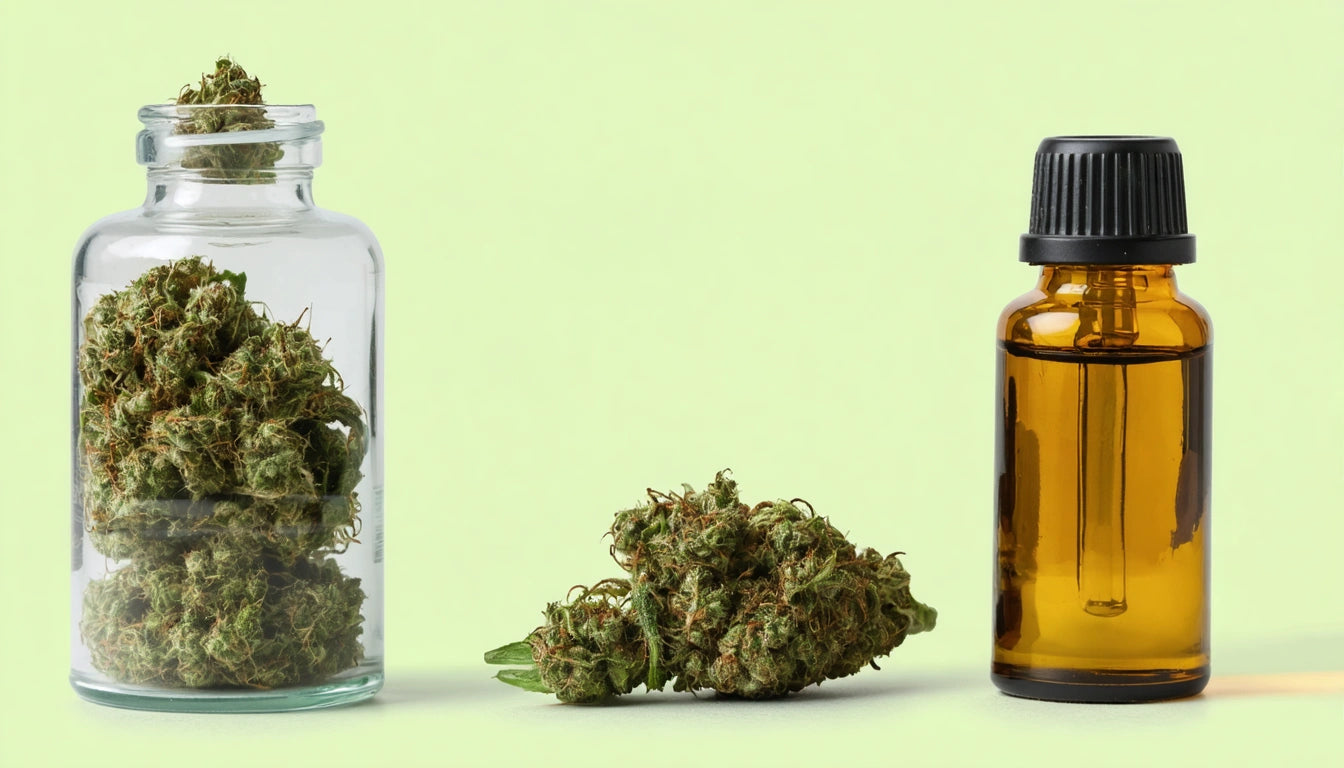Table of Contents
How Cannabis Use Impacts Blood Sugar Levels and Diabetes
The relationship between cannabis and blood sugar levels has become an increasingly important topic as marijuana legalization expands across the country. Many cannabis users and medical professionals are asking: does weed lower blood sugar? The answer isn't straightforward, as cannabis contains numerous compounds that may affect blood glucose regulation in complex ways.
The Relationship Between Cannabis and Blood Sugar
Cannabis contains over 100 cannabinoids, with THC (tetrahydrocannabinol) and CBD (cannabidiol) being the most studied. These compounds interact with the body's endocannabinoid system, which plays a role in regulating metabolism, appetite, and energy balance. This interaction can potentially influence blood sugar levels in several ways.
Research suggests that cannabis may affect insulin sensitivity, which is crucial for blood sugar control. Some studies indicate that regular cannabis users have lower fasting insulin levels and insulin resistance compared to non-users, suggesting that cannabis might help improve insulin function. However, other research shows contradictory results, highlighting the complexity of this relationship.
THC impacts blood sugar levels through its interaction with CB1 receptors in the pancreas, liver, and muscle tissue. These interactions can influence insulin production and glucose metabolism, potentially affecting blood sugar regulation.
How THC and CBD Affect Blood Glucose Regulation
THC Effects on Blood Sugar
THC, the psychoactive component in cannabis, has been shown to:
- Potentially increase insulin sensitivity in some users
- Stimulate appetite, which can indirectly affect blood sugar levels
- Influence the release of hormones that regulate blood glucose
The question "does pot lower blood sugar" is complex because THC's effects can vary based on dosage, consumption method, and individual factors. While some research suggests THC may help lower blood sugar in certain contexts, high doses might actually increase blood glucose levels due to stress responses in the body.
CBD Effects on Blood Sugar
CBD, the non-psychoactive cannabinoid, appears to have different effects on blood sugar compared to THC:
- May reduce inflammation, which can improve insulin sensitivity
- Could help protect insulin-producing cells in the pancreas
- Might reduce anxiety and stress, which can indirectly benefit blood sugar control
For individuals wondering if cannabis affects blood sugar levels, it's important to consider that different cannabis strains contain varying ratios of THC to CBD, which can produce different effects on blood glucose.
Cannabis Use for People with Diabetes
For the 34.2 million Americans living with diabetes, the question "can diabetics smoke weed" is particularly relevant. Cannabis use among diabetics requires careful consideration of several factors:
Type 1 diabetics must be especially cautious, as cannabis can affect judgment and potentially lead to missed insulin doses or improper blood sugar monitoring. The appetite-stimulating effects of cannabis (commonly known as "the munchies") can also complicate carbohydrate counting and insulin dosing.
For Type 2 diabetics, some research suggests potential benefits. A 2013 study published in the American Journal of Medicine found that current marijuana users had 16% lower fasting insulin levels and 17% lower insulin resistance compared to non-users. However, these findings don't necessarily translate to a recommendation for cannabis use in diabetes management.
When considering how cannabis affects hunger, diabetics should be aware that increased appetite could lead to higher carbohydrate intake and subsequent blood sugar spikes if not properly managed.
Current Research on Cannabis and Diabetes
Scientific research on whether weed raises blood sugar or lowers it shows mixed results:
- A 2015 study in Epidemiology found that marijuana use was associated with a 30% reduction in diabetes risk
- Research in the Journal of Diabetes Research suggested that THCV (a less common cannabinoid) might improve glucose tolerance
- Studies in Diabetes Care indicated that heavy cannabis use might actually increase the risk of prediabetes in young adults
These contradictory findings highlight the need for more comprehensive research. The complexity of cannabis effects is further illustrated when considering how weed impacts blood pressure, which can indirectly affect diabetes management.
In our work with cannabis producers, we've observed increasing interest in precise dosing solutions. Our cannabis filling equipment options help manufacturers create consistent products, which is particularly important for medical cannabis users monitoring health conditions like diabetes.
Practical Considerations for Cannabis Users with Diabetes
If you have diabetes and choose to use cannabis, consider these practical guidelines:
- Monitor blood sugar more frequently when using cannabis, especially when first starting
- Be aware that smoking can affect metabolism and digestion, potentially altering how quickly carbohydrates are processed
- Consider using a continuous glucose monitor to track patterns when using cannabis
- Discuss cannabis use openly with healthcare providers to ensure comprehensive care
- Have diabetes supplies and glucose tablets easily accessible in case of hypoglycemia
Understanding how smoking weed affects blood sugar levels requires personal monitoring, as individual responses can vary significantly. Some users report more stable blood sugars, while others experience unpredictable fluctuations.
Future Implications for Cannabis in Diabetes Management
As research evolves, cannabis may eventually play a more defined role in diabetes management. Specific cannabinoids or terpenes might be isolated and developed into targeted therapies for blood sugar regulation. The growing interest in cannabinoid medicine could lead to new approaches for addressing insulin resistance and glucose metabolism disorders.
However, until more conclusive evidence emerges, people with diabetes should approach cannabis use cautiously. The question of whether weed lowers your blood sugar doesn't have a one-size-fits-all answer, and individual responses must be carefully monitored.
For now, traditional diabetes management approaches—including proper diet, exercise, medication adherence, and regular medical supervision—remain the foundation of care. Cannabis, if used, should be considered a complementary approach rather than a replacement for established treatments.











Leave a comment
All comments are moderated before being published.
This site is protected by hCaptcha and the hCaptcha Privacy Policy and Terms of Service apply.